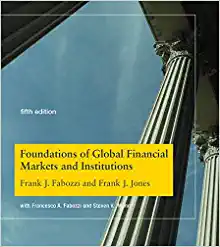Question
(1) Markets are believed to deliver efficiency because they: Select one: a. Maximise the total benefits from exchange b. Make sure goods are produce at
(1) Markets are believed to deliver efficiency because they:
Select one:
a.
Maximise the total benefits from exchange
b.
Make sure goods are produce at the lowest costs
c.
Generate the most benefits for consumers
d.
Distribute resources in the most equitable way
(2) What is the task of rational choice theory?
Select one:
a.
to identify the feelings and emotions influencing consumers' decisions
b.
to identify the trade offs consumers are willing to accept with respect to product attributes
c.
to identify or discover the one optimal choice for the decision confronting the decision maker
d.
to identify the cognitive structure of consumers when making a choice
(3) Which of the following statements is NOT true? In the free market, changes in the price of a product:
Select one:
a.
result from the interplay of demand and supply
b.
can provide an incentive to reallocate resources
c.
are set by the government
d.
can act as a signal to producers
(4) Which of the following is NOT true about Neoliberalism?
Select one:
a.
It is a new form of an old economic liberalism laid out by Adam Smith in The Wealth of Nations
b.
Neoliberalism has been spreading globally.
c.
Neoliberalism advocates more government regulation and state involvement.
d.
Neoliberalism places great emphasis on "individual responsibility."
e.
Neoliberalism came to prominence following the oil crisis in the 1970s .
(5) If external costs are significant in a production process it is likely that:
Select one:
a.
The output of the production process will be less than it should be for efficiency.
b.
The output of the production process will not deviate from the efficient output even if the external costs persist.
c.
The output of the production process will be greater than it should be from an efficiency point of view.
d.
The costs will be automatically eliminated by the market forces that push toward efficiency.
(6) Which theory assumes that the consumer is a rational decision maker with well-defined, stable preferences, and has sufficient skills to calculate which option will maximize his or her value and will choose on this basis?
Select one:
a.
attribution theory
b.
rational choice theory
c.
dual coding theory
d.
affect theory
(7) The acronym TINA implies that:
Select one:
a.
free markets, free trade, and capitalist globalisation are the best or the only way for modern societies to develop
b.
there is no viable alternative to neoliberalism
c.
global capitalism is the only system possible and that debate about this is over
d.
all of the above
(8) The law of supply implies that:
Select one:
a.
the supply curve slopes upward.
b.
firms are enticed to supply more output if the price is higher
c.
costs of providing goods and services rise as more output is generated.
d.
all of the above are true.
(9) In Hardin's example of a shared commons, what is the rational strategy for herdsmen to act in their own best interest?
Select one:
a.
Keep fewer cows
b.
Have the same amount of cows as their neighbour
c.
Buy more cows
d.
Get out of the grazing business
(10) Economists believe that human behavior follows economic principles to some extent because
Select one:
a.
people are intelligent and study the principles until it becomes natural for them to act according to the principles.
b.
Everyone is socialized into similar preferences and therefore no one is really free to choose
c.
People muddle through life learning from their mistakes and finally end up doing what economic theory predicts they will do.
d.
Emotions, social norms, and values are all based on rational choice concepts.
Step by Step Solution
There are 3 Steps involved in it
Step: 1

Get Instant Access to Expert-Tailored Solutions
See step-by-step solutions with expert insights and AI powered tools for academic success
Step: 2

Step: 3

Ace Your Homework with AI
Get the answers you need in no time with our AI-driven, step-by-step assistance
Get Started


